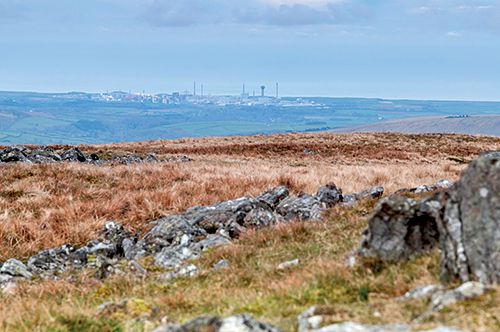Decentralised Renewable Energy Generation in Cumbria
Climate change is a global issue, but one that will have serious and damaging effects on local businesses and individuals in Cumbria. Driving Cumbria’s progress towards net zero carbon emissions is a strategic priority for the Cumbria Local Enterprise Partnership, as we aim to make Cumbria a great place to live, work and invest both now and in the future.
In our net zero programme we have two main areas of focus: business decarbonisation and clean energy generation. Cumbria is already a leader in renewable energy generation – 15.9% of the electricity produced from offshore wind in the UK is produced in Cumbria. However, we want to go further and to cement Cumbria’s reputation as a pioneer in clean energy.
In summer 2022 we published our Clean Energy Strategy, which aimed to provide stakeholders with a comprehensive assessment of how a wide range of clean energy opportunities could be deployed in Cumbria in alignment with government policy. The focus of the strategy was on large scale technologies such as new nuclear, offshore wind and carbon capture, usage and storage (CCUS).
Building on the Clean Energy Strategy and recognising the need for a diverse range of contributors to the energy mix, we have now produced our Distributed Energy Strategy. Produced by EY, with funding from the North West Net Zero Hub, the focus of this strategy is on smaller-scale, decentralised technologies more suitable for rural and remote areas. The Strategy investigates the potential contributions of various technologies to Cumbria’s energy mix and is ultimately intended to facilitate discussion between stakeholders to accelerate the delivery of these technologies. Some key findings include:
- Cumbria’s windy landscapes and low population density make it the ideal location for cost-effective and community-backed onshore wind developments to add to the existing offshore wind infrastructure.
- There is huge potential for growth in tidal and wave energy generation in the UK, and Cumbria, with its extensive coastline and strong tides, can play a leading role in this growth.
- Cumbria is not well known for its sunshine, but even here there are exciting and as-yet underexplored opportunities regarding agrovoltaics – the combination of ground-mounted solar panels with commercial livestock grazing. Cumbria’s large manufacturing sector also provides opportunities for rooftop solar generation at industrial sites, with the dual benefit of lowering energy bills for businesses in the county.
- Deep geothermal energy generation in Cumbria comes with many challenges related to the geological properties of the county and protected status of much of its land area. However, in Cumbria there exists a great wealth of local transferrable skills and expertise from the oil and gas industry, and if these challenges can be overcome, geothermal energy could provide a reliable source of power for the county.
- Cumbria’s existing prevalence of feedstocks such as bracken and animal manure, combined with its ideal climate for crops such as miscanthus, presents a significant opportunity for the deployment of a range of different bioenergy technologies – helping to decarbonise the energy supply whilst also providing farmers with diversified income streams.
- The extensive network of rivers, streams and lakes in Cumbria, along with its famously undulating topography, provide the ideal conditions for successful hydropower schemes. These schemes are also highly complementary with other sources of renewable energy that are abundant in Cumbria such as wind.
There is significant potential for decentralised, community-level renewable energy generation to make a substantial contribution to Cumbria’s energy mix. This is especially true during a time of national policy uncertainty, when large-scale infrastructure projects typically encounter delays in consenting and securing grid connections. The hope is that this study can provide the impetus to stimulate conversation between businesses, local authorities and third sector organisations, and ultimately accelerate the deployment of these technologies.
The CLEP will aim to facilitate this conversation through continued engagement with various stakeholders in the county, to build on our previous work in the area of clean energy generation, and we believe that Cumbria can, through collaboration and informed action, build upon its existing reputation as a clean energy superpower to become a true pioneer in decentralised renewable energy generation.
Download: Cumbria Distributed Energy Strategy (.PDF, 3.2.MB)


